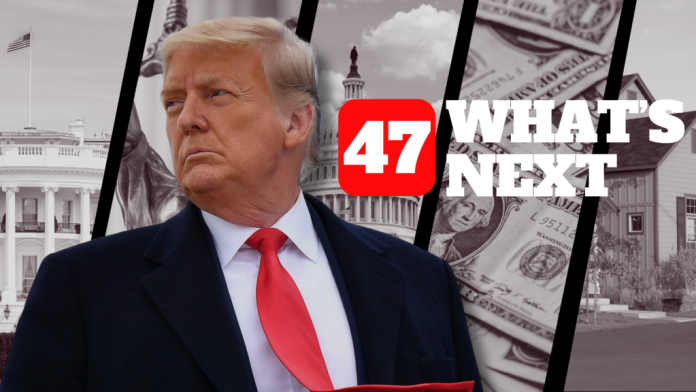Unable to attend Inman Connect New York in person? Don’t miss out on insights and strategies shared by over 250 industry-leading speakers across 75+ carefully curated sessions. With a Virtual Pass, you’ll get all the tools you need to seize new opportunities — delivered straight to your screen, wherever you are!
President Donald Trump has begun his second term. Throughout the week, Inman is exploring the administration’s housing policies — from the privatization of Fannie Mae and Freddie Mac to mounting antitrust issues. Read the first story in the series HERE, and join us Wednesday for part three, outlining his plans for HUD.
The economy was arguably the deciding factor in the 2024 presidential election, with exit polls revealing that six in 10 Americans believed the economy was ‘not so good or poor’ despite the metrics.
During former President Joe Biden’s term, the U.S. was one of only three G7 countries to have a stronger real gross domestic product growth than its pre-COVID level. Biden’s administration also kept unemployment rates near a 50-year low, added 16.6 million new jobs in four years, and stimulated the highest annual increase in real wage growth since 2021.
TAKE THE INMAN INTEL INDEX SURVEY FOR JANUARY
He also scored major healthcare policy wins to reduce medical costs, including capping insulin at $35 and out-of-pocket prescription costs at $2,000.
But an October Gallup poll found voters trusted Trump’s ability to control the economy (54 percent) more than former Vice President Kamala Harris (45 percent), as he promised to bring manufacturing power back to the U.S. through hefty tariffs, extend the 2017 Tax Cuts and Jobs Act and eliminate federal income taxes, reduce Social Security and Medicare system spending, and drive down gas prices by repealing Biden’s environmental policies to control oil drilling.
Economists have been split on the outcome of Trump’s vision, as the potential benefits of some policies might be wiped out by others.
“Trump’s economic policies offer promise and risk,” Rice University Center for Public Finance director




